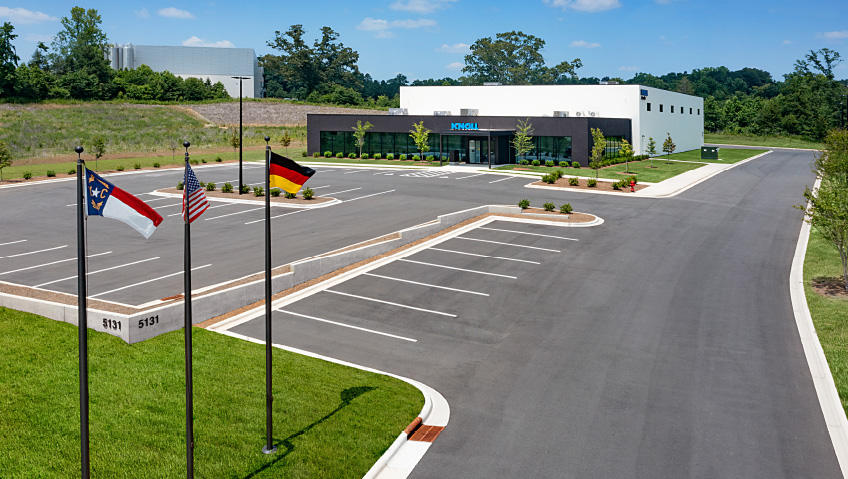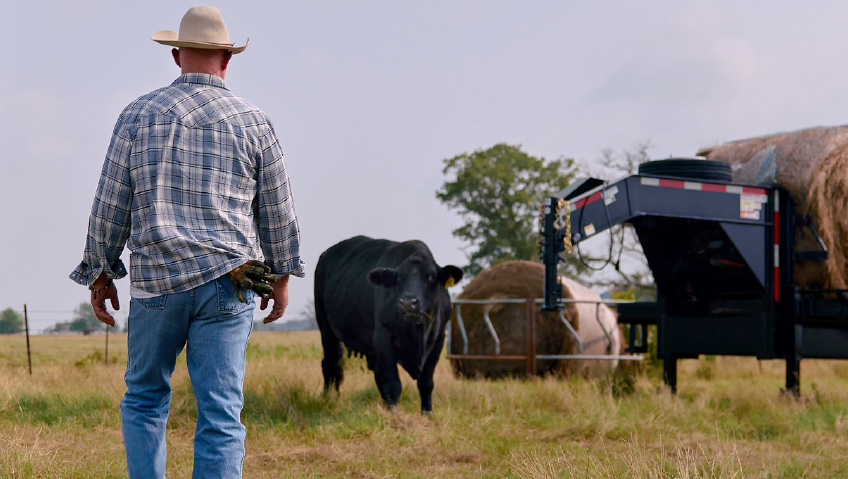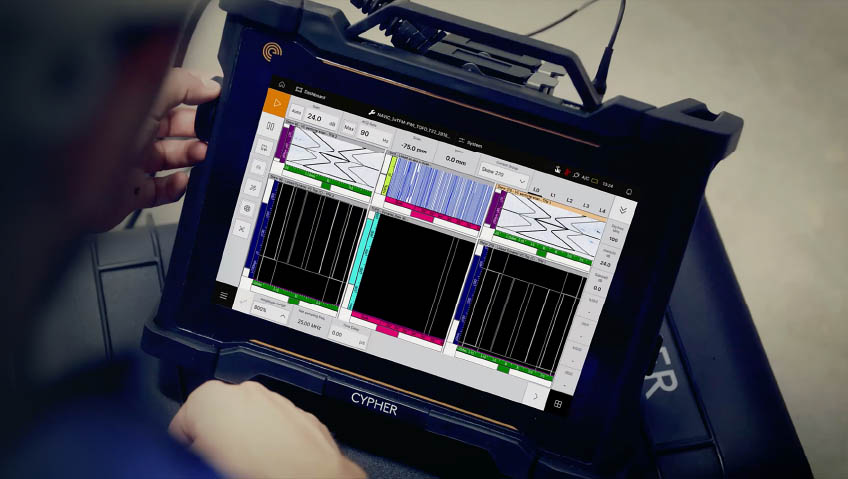Back in 1946, Smith Hughes, a stationary engineer running the boiler room at a hospital in Cincinnati, took a risk and quit his job to launch his own company. “He decided to go out on his own after World War II and start working on boilers. He then became a manufacturer’s representative for different boiler companies, and built the company up from there to supply and install and service equipment,” shares Bradley Hughes, Smith’s grandson and company President.
In 1963, Smith’s son, Don Hughes, came on board, followed by Bradley Hughes in 1996. The company remains a family affair to this day, owned and operated by the third generation.
When Bradley Hughes joined the company, he spearheaded efforts to update and modernize, and Smith Hughes expanded beyond its original business model. “I realized we were a little bit antiquated and out of date,” Hughes laughs. “I got our computers networked and got everything computerized—our inventory and all of our quoting and everything. And we started expanding, getting more service techs so we could do installation of the equipment that we sold.”
These upgrades included a new facility. “We were operating out of about 1,900 square feet, basically an office building with a small area in the back for part storage and small parts repair,” he remembers. The company moved into an 18,000-square-foot facility in 2007, which allowed the team to expand into the rental boiler market. “What we do there is we buy the equipment, we buy a shipping container, and we [put together] a complete boiler room in the shipping container,” Hughes explains.
The rental boilers have been a huge hit with customers. “These units that range in size from 30 horsepower to a couple thousand horsepower can be rolled up to a customer’s location that’s in need of temporary steam, hot water, or hot oil service,” Hughes says. “They simply roll it up next to the building, and they can use hoses that we provide to connect the steam, the water, the fuel, and electric.” If the customer wants the help, “we provide the service to pipe, install, and connect that rental unit to the building for temporary service.”
Business boomed with the addition of the rental boilers, and soon the company needed even more space. “We did run out of room pretty quickly,” says Hughes. There was no choice but to expand yet again and in December 2024, the team completed construction on a 34,000-square-foot facility to suit their specific needs. “The new building we built is for nothing but fabricating and repairing these rental boiler units.”
When asked how the company has managed to maintain success through three generations of family ownership, Bradley Hughes sites an eagerness to evolve with the marketplace and deliver a complete solution. “I think it’s our ability to adapt and change,” he says. “It’s our ability to have the full gamut of supply services, meaning anything that you can think of in a boiler room we can provide, whether it’s a small $2 part or a two and a half million-dollar piece of equipment—and all of the service and the installation, from supplying, to installing, to servicing, to upgrading, to operator training, welding repairs, and temporary equipment.”
Customers appreciate this convenient, one-stop shop approach. “Somebody makes one phone call to us, and we don’t have to defer to anybody else. We have the ability to take care of anything and everything from start to finish, front to back—anything you can come up with in the boiler room. And I think that’s what has enabled us to continue to be successful.”
This commitment to solving the customer’s problem—whatever it may be—has led to repeat business. “We’re able to get [their problem] taken care of,” Hughes says. “It may be a small thing, it may be a big thing, but either way, they understand our abilities. So they’re always going to call us back in.”
Customers are so loyal, in fact, that some have been working with the company for decades. “We still have customers that my grandfather originally sold equipment to,” Hughes says. “We’re still working on that equipment. And if we’ve upgraded and replaced the equipment, we’re the ones that supply the new replacement equipment; we’re the ones providing all the service. We have a couple of companies that were originally family owned, and now they’re in their second or third generation. I’m dealing with their grandsons just like my grandfather dealt with their grandfathers when they started the business,” he says.
“That comes back to the culture that we’ve tried so hard over the years to keep—a good culture of good people that understand that we’re in the problem-solving business,” he continues. “It can take sometimes years to acquire a customer, but it can take you 30 seconds to lose one and never get them back. So, once we have a customer and we get set up with them, we hold on to that customer for decades at a time.”
Customers are not the only people who stay with the company for the long term. “I’m lucky to have a great group of people that have been with me—some for over 20 years—and have dedicated their careers to help building the place,” Hughes says. The company is “a place designed to retire from. People get on board and stay.”
Looking ahead, Smith Hughes’ new facility will have everything the team needs to fully serve their ever-growing customer base. “We’ve got a 40-ton overhead crane,” says Hughes. “We have a ton of room for storage. We’re fabricating six, seven units at a time. We’ve got plenty of parking once we get the units built to keep them out of the way. We’ve got room to do our repairs. We’ve got a big test fire bay where we can test fire an 82.5 million BTU steam boiler that we were not able to do at the other facility.”
Never ones to rest on their laurels, the team plans to expand their rental fleet even more in the future, which is not a simple endeavor. “It takes quite a bit of funding and a lot of effort and planning,” Hughes tells us. “You know, these things, you’re not buying them off the shelf. You’ve got to buy all the raw components and put them all together. So, that takes engineered drawings, and that takes scheduling of equipment being delivered, and parts being available, and then the actual fabricating process. So, my goal in the future is to continuously streamline our manufacturing process so that we can turn around these units at a much quicker pace to keep up with the market demand.”
After nearly 80 years in business, Smith Hughes continues to push forward and leave its mark on the industry. “We’re making some waves and have a really good market share and a grasp on the market across the country,” Bradley Hughes says. With a solid legacy in place, the market leadership of this third-generation company is bound to endure far into the future.






